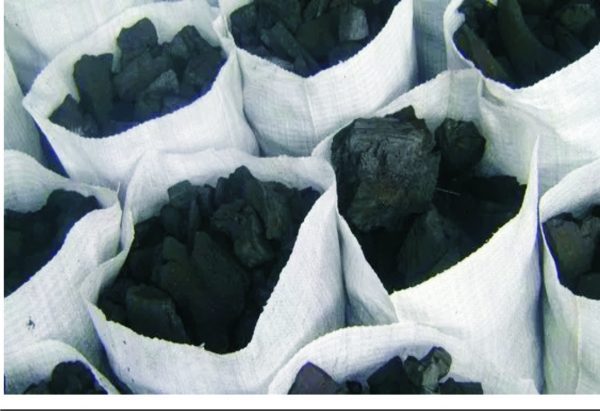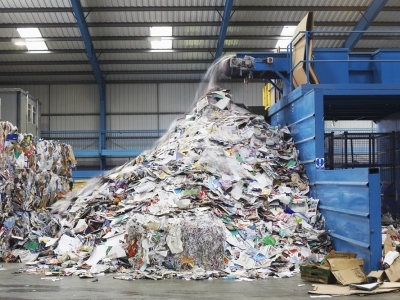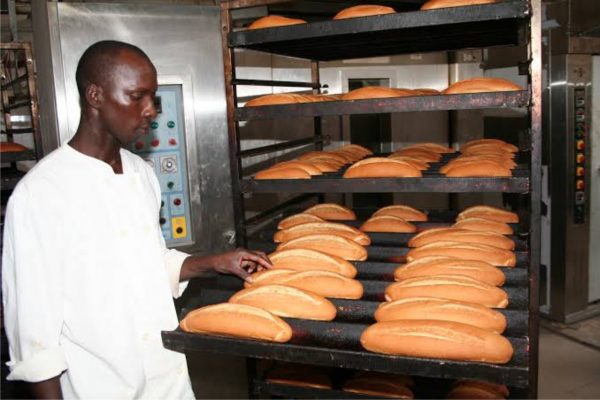How To Begin A Lucrative Charcoal Export Business

Do you know that black material formed after heating wood that is called “Charcoal” and we are likely to discard after use because we do not think it is important? It would amaze you to know that that right there is a lucrative business opportunity that you are unaware of.
At least, we know that even within the country, people trade in charcoal and make a lot of money, now, imagine trading with the outside world. It might surprise you to know that charcoal has quite a number of more important uses besides cooking and many outside of our shores will appreciate a chance to have it in abundance. More commonly, charcoal is appreciated in countries where they experience months of winter to heat their house. Due to the coldness of those places, they need charcoal in abundance to keep their homes perpetually warm so they do not freeze to death. If they can get an opportunity to get it in abundance, they would be most assuredly glad.
Also, charcoal is used as metallurgical fuel to melt or smelt metals such as irons, so it is a very important source of fuel to the blacksmith.
It is also important as a source of fuel for some industries, it is used to produce black powder used in making fireworks, it also serves as an effective filter because charcoal has the ability to absorb certain organic compounds from suspended in gases or liquid. These are a few uses of charcoal that is why it is regarded as important and in high demand. It cannot be emphasized how lucrative it is as a business.
However, like every business, you have to learn how it is done, so as not to run into trouble. Every business is a risk because, at your best, you cannot prevent some unforeseen circumstances but there are different ways of minimizing the risks to reduce the effects as much as possible.
The gradual global shift from the mass distribution of oil products has opened up opportunities in several other energy sectors. This trend has set a pace for the widespread demand of cheaper energy sources for households and communities. Since the cost of kerosene, diesel, and petrol still somewhat carry high market figures, African and several other individuals in the developing world seek cheaper alternatives. One lucrative source is charcoal, and this has given rise to a large charcoal export industry
Charcoal provides a low-cost method of cooking for local communities around the developing part of the world. Most of the locals living in these small communities cannot afford to use cooking gas, kerosene, or even electric cookers with the absence of electricity. And as a result, this Charcoal alternative represents more than 80% of the total energy used in preparing household meals in Africa.
With a large charcoal market existing in Europe, America, & Asia, the global worth continues to retain its multi-billion Dollar value. This poses a huge opportunity for deep-pocket investors looking to make investments in an energy sector. For instance, 70% of the slightly over 60,000 metric tons of charcoal used yearly in the United Kingdom comes from Africa. The value of a ton of charcoal is between 200 Euros to 210 Euros. A charcoal supplier exporting between 1,000 to 10,000 metric tons yearly would be generating annual revenue between the values of 200,000 Euros to 2,000,000 Euros.
How Is Charcoal Made, And In What Areas Of Nigeria?
Charcoal is largely made from tropical woods; although some variations like charcoal briquettes are made from coconut shells. During the production process, wood is burnt at really high temperatures in the absence of air. This production process is termed carbonization.
The production of charcoal is done in various communities and states around Nigeria. Some are Kaduna, Jos, Minna, Egbe, Jebba, Oyo, and several others. These areas are high production centers, but production can also be carried out in most other parts of the country.1
Is Investing In The Charcoal Export Business Ethical?
The arguments on the ethical rudiments of the charcoal business stands valid. While venturing into this energy sector would mean mass deforestation, global warming, and several other demeaning factors, without the charcoals been sold in the local markets, many Africans living in the local communities would be unable to afford high-cost energy resources like kerosene and cooking gas to prepare their daily meals. 80% of the individuals who use this charcoal products live below the poverty line, and as such, cannot be forced to use products they cannot afford. This unfortunate situation causes them to use the low-cost alternatives available to them.
How Then Do I Make Money From The Charcoal Export Business In Nigeria?
The charcoal industry poses several opportunities to energy-savvy individuals. This large industry can be tapped from several fronts, but here are three (3) business opportunities in the charcoal industry:
Charcoal Production: Production of charcoal been a delicate process, requires specific individuals who are skilled in the craft, and are willing to get their hands dirty. The production is a highly labour-intensive process. Trees have to be fell, chopped, and burnt at high temperatures. Since most exporters can’t get involved with this stressful process, they leave the whole work-flow to the charcoal producers, who in turn sell to them in large quantities but, at low prices.
Charcoal Export & Distribution: This is the most popular business opportunity exploited in the charcoal industry in Nigeria, and around the world. With tens of thousands of metric tons of charcoal exported yearly from Nigeria, the revenues generated makes the sector lucrative. Here, the sales could be done by local traders in the market, or by large players exporting the charcoal products outside the country.
Before charcoal can be exported, certain standards must be met. For example, the moisture content, the fix carbon, the ash contents, and several others need to be right, based on the buyer’s specifications. An inspection by the buyer’s agents or the buyer themselves, could lead to a rejection of the full shipment if they don’t meet the required standards.
The charcoal prepared for export must also be packaged to the buyer’s taste. They could be packaged in small sizes to enable local buyers purchase easily for their needs, or they could be packaged in bulk, weighing different sizes; anywhere from 5kg and above, and then placed in containers ready for shipment by a shipping company, and delivered to the buyer anywhere in the world.
Funding: No business can survive without funding. It is not even something that needs to be talked about. Capital is one of the factors of production. luckily, considering there are different categories you can get into in the business, you have choices based on the capital at your disposal. If you think you cannot garner funds to be a full-fledged exporter, then you can simply settle for being a product sourcing expert. That does not need much capital to start, except that you have to hone your marketing skills. However, funding is necessary for the others. There are different ways of getting funding for your business: Personal funds; Help from family and friends Investors; Government grants through NEPC and other agencies; Loans.
Starting out in your distribution and export of charcoal products could cost you between 300,000 ($1000) t0 1,000,000 ($3334) Naira. With a signed order for shipment by a buyer, the supplier could approach the Nigeria’s Bank Of Industry (BOI) for a loan to easily fulfill the order. It’s a lot easier to get loans and grants in Nigeria when there’s an existing request or customer base for your charcoal products than when you’re just starting out and seeking random capital.
Charcoal Appliances: Charcoal appliances could be charcoal stoves and other devices that make the charcoal production and usage process easier. An example is a Ghanaian company called Toyola Energy. They manufacture charcoal stoves and sell them for about $8 a stove. These energy-efficient stoves make charcoal usage easier for the locals who live in communities and base their cooking energy source majorly on charcoal.
There are different ways you can be involved in the charcoal export business, depending on what interests you.
Seller or Exporter: You can be the one who is directly selling to a buyer(s) overseas.
Export Broker: There are many rich men who are looking for where and what to invest their money in or simply they have the finances but lack the time to go into the charcoal business. If you are one of such men, you can find a charcoal exporter, fund the business and share the profit with him or her. Also, as an exporter, you can also get these investors to help improve your business, especially if it is lacking financially and share the profit with them.
Product Sourcing Expert: To ease the stress, some buyers and sellers contract brokers to serve as middlemen for the trading. These middlemen would find buyers and sellers and act as an agent in the trade. It is sometimes difficult to find suppliers of quality charcoal and the job of the sourcing expert would be to find quality suppliers and connect them to the exporter or to find buyers overseas and connect them to the exporter. In this case, you get a commission from the sale.
However, to be successful in this aspect, you have to be a skilled marketer. If you know it is not something that comes naturally to you, you need not be discouraged; there are a number of training grounds where you can learn to be a good marketer.
Marketing skill is important because you have to sell yourself to the sellers and buyers so they can employ your services and let you source for them. It depends on what interests you of course. Now to the main business, what would you need to start your business as an exporter of charcoal?
Research: Read up on all and everything you can find on charcoal, export (such as export policies of your country and import policies of the country you would be importing to), and charcoal export in particular. One can never go wrong with research. It saves you from a lot of problems.
Register your business: This cannot be overemphasised. As a Nigerian, you most likely have an idea of the reputation fraudulent Nigerians have gotten for the country.
Therefore, an average foreigner would treat Nigerians with distrust. The last thing you want is to increase the distrust by showing up with an unregistered business. If you want to be taken seriously, you have to take yourself seriously, go to CAC (Corporate Affairs Commission), get a business name and register it.
Then you should also go to NEPC (Nigeria Export Promotion Council Certificate) to register as an exporter. Apart from the fact that it would add credibility to your business, every exporter in Nigeria would find it beneficial registering with them because they actually make your job easier by some of the help offered exporters in the country. And personally, registering your business makes you unconsciously feel a sense of responsibility and thus, seriousness to your business.
Get a business account: Every business consultant or entrepreneur would advise you to get a business account, so as to help you manage your finances. Do not make the mistake of mixing your personal finances with that of your business. But of course, you would start the business with personal funding if you have one, but that certain amount you want to put into the business should be put into a separate account. Also, having a business account makes your business trustworthy and credible.
Get mentorship: Nobody can go wrong with a wise counsel. You know how people say experience is the best teacher? Well, that is true but even more accurate is that the experience does not have to be yours. It can be other people’s experience. If possible, in order not to make the mistakes that others before you have made, then find people who have gone ahead of you in the business to seek guidance. Some even offer training classes that you might want to consider.
Get Suppliers: This is also as important to the buyers as registering your business. Believe it or not, the fact that the reputation of Nigeria is nothing to write home about is not tales by moonlight, it is true. So as a Nigerian, you are constantly laden with the responsibility of proving yourself to the foreigners before they can open their heart to you and not completely write you off as a fraudster.
Why is this important to the issue of getting suppliers, you may ask? It is important because if you make the mistake of supplying sub standard product, you might not get a second chance to someone from another country.
While you know it is an honest mistake, they do not know that and frankly, would probably not be ready to listen to excuses. Now, you get why it is necessary to make sure you get the right suppliers. This is not something you jump into; it is something you have to take your time to be sure about.
Get buyers: Countries in Europe and Asia are usually in high demand of charcoal and they source from Nigeria among other countries because of the quality of the tree source of our charcoal here in Nigeria. Exporters, however, enjoy a higher demand from European countries such as Belgium, Poland, Italy, Holland, Denmark, and Germany. The total cost for completing each ton of charcoal is in the range of N28, 260 and the selling price to the Buyer which you saw the contract is at 180 EUROs per ton
You cannot start a business without having clients who buy from you, so it is normal to wonder how to get them. An effective way is by attending trade fairs, most times, organized by NEPC. The point of the trade fairs is to connect sellers to buyers, so you can take advantage of it. Also, you can employ the services of an agent who is an expert in sourcing for buyers and sellers and connecting them.
Charcoal export is a really lucrative business that you can take advantage of if you are at a loss what kind of business to go into. If you judiciously follow what you have learnt and do even more research, you are on your way to success.








Great information on charcoal business.